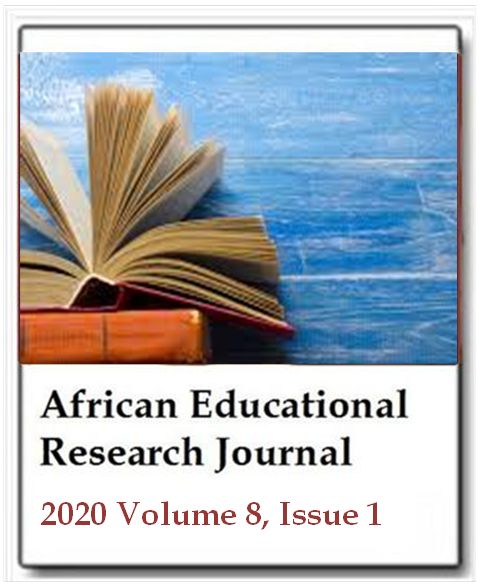Immigrant children’s construction of their identity: The case of African children
Esther Somé-GuiébréAfrican Educational Research Journal
Published: March 10 2020
Volume 8, Issue 1
Pages 41-45
DOI: https://doi.org/10.30918/AERJ.81.18.103
Abstract
This paper examines how the children of African immigrants construct their identity in the United States. The U.S. immigration policies allowing citizens of foreign countries to migrate into the country, have favored the immigration of many Africans into the country. Many of those immigrants experience challenges ranging from language and economic issues to social and cultural integration. The challenges are more accrued for the children who have to juggle between their cultural backgrounds reinforced at home and the values available in their new cultural and social environment. While there is a large body of literature dealing with issues of identity faced by immigrant children in general and English language learners in particular, the case of African children has remained unexplored. Because of the linguistic diversity in African countries, most of the children spoke at least one language other than English before immigration, they do not always have the space to practice it as their languages and cultures are marginalized both at school and in the society. In this paper, I investigate the following questions: To what extent are African children familiar with their social and cultural backgrounds? How do children identify themselves? What are the factors that impact on the children’s identity? To which extent do parents influence their children’s identification of the self?
Keywords: Immigrants, students’ identity, African students, English language learners.
Full Text PDFThis article is published under the terms of the Creative Commons Attribution License 4.0

